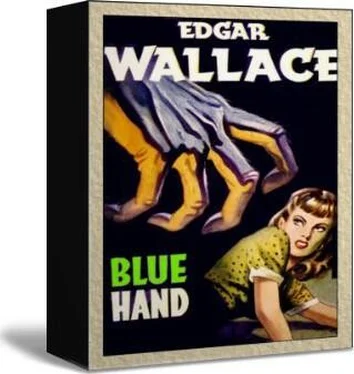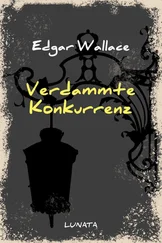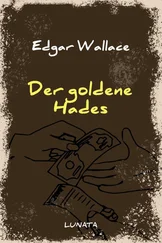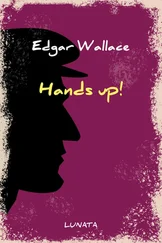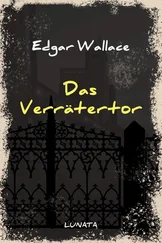Edgar Wallace - Blue Hand
Здесь есть возможность читать онлайн «Edgar Wallace - Blue Hand» весь текст электронной книги совершенно бесплатно (целиком полную версию без сокращений). В некоторых случаях можно слушать аудио, скачать через торрент в формате fb2 и присутствует краткое содержание. Год выпуска: 0101, Жанр: Старинная литература, на английском языке. Описание произведения, (предисловие) а так же отзывы посетителей доступны на портале библиотеки ЛибКат.
- Название:Blue Hand
- Автор:
- Жанр:
- Год:0101
- ISBN:нет данных
- Рейтинг книги:3 / 5. Голосов: 1
-
Избранное:Добавить в избранное
- Отзывы:
-
Ваша оценка:
- 60
- 1
- 2
- 3
- 4
- 5
Blue Hand: краткое содержание, описание и аннотация
Предлагаем к чтению аннотацию, описание, краткое содержание или предисловие (зависит от того, что написал сам автор книги «Blue Hand»). Если вы не нашли необходимую информацию о книге — напишите в комментариях, мы постараемся отыскать её.
Blue Hand — читать онлайн бесплатно полную книгу (весь текст) целиком
Ниже представлен текст книги, разбитый по страницам. Система сохранения места последней прочитанной страницы, позволяет с удобством читать онлайн бесплатно книгу «Blue Hand», без необходимости каждый раз заново искать на чём Вы остановились. Поставьте закладку, и сможете в любой момент перейти на страницу, на которой закончили чтение.
Интервал:
Закладка:
Digby lost no time. He dispatched Silva in the car, telling him to make the coast as quickly as possible, and to warn the captain of the Pealigo to be ready to receive him that night. He wrote rapidly a code of signals. When in sight of the sea Bronson was to fire a green signal light, to which the yacht must respond. A boat must be lowered on the shoreward side of the yacht ready to pick them up. After the messenger had left he remembered that he had already given the same orders to the captain, and that it was humanly impossible for the Spaniard to reach the yacht that night.
Digby had in his calmer moments made other preparations. Two inflated life-belts were taken to the aeroplane and tested, signal pistols, landing lights, and other paraphernalia connected with night flying were stowed in the fuselage. Bronson was now fully occupied with the motor of the aeroplane, for the trouble had not been wholly eradicated, and Digby Groat paced up and down the terrace of the house, fuming with impatience and sick with fear.
He had not told the girl to prepare, that must be left to the very last. He did not want another scene. For the last time he would use his little hypodermic syringe and the rest would be easy.
Fuentes joined him on the terrace, for Fuentes was curious for information.
“Do you think that the finding of Villa’s body will bring them after us here?”
“How do I know?” snapped Digby, “and what does it matter, anyway? We shall be gone in an hour?”
“You will,” said the Spaniard pointedly, “but I shan’t. I have no machine to carry me out of the country, and neither has Xavier, though he is better off than I am—he has the car. Couldn’t you take me?”
“It is utterly impossible,” said Digby irritably. “They won’t be here tonight, and you needn’t worry yourself. Before the morning, you will have put a long way between you and Kennett Hall.”
He spoke in Spanish, the language which the man was employing, but Fuentes was not impressed.
“What about that man?” He jerked his thumb to the west wing, and a thought occurred to Digby. Could he persuade his hitherto willing slave to carry out a final instruction?
“He is your danger,” he said. “Do you realize, my dear Fuentes, that this man can bring us all to destruction? And nobody knows he is here, except you and me.”
“And that ugly Englishman,” corrected Fuentes.
“Masters doesn’t know what has happened to him. We could tell him that he went with us!”
He looked at the other keenly, but Fuentes was purposely stupid.
“Now what do you say, my dear Fuentes,” said Digby, “shall we allow this man to live and give evidence against us, when a little knock on the head would remove him for ever?”
Fuentes turned his dark eyes to Digby’s, and he winked.
“Well, kill him, my dear Groat,” he mocked. “Do not ask me to stay behind and be found with the body, for I have a wholesome horror of English gaols, and an unspeakable fear of death.”
“Are you afraid?” asked Digby.
“As afraid as you,” said the Spaniard. “If you wish to kill him, by all means do so. And yet, I do not know that I would allow you to do that,” he mused, “for you would be gone and I should be left. No, no, we will not interfere with our courageous Englishman. He is rather a fine fellow.” Digby turned away in disgust.
The “fine fellow” at that moment had, by almost super-human effort, raised himself to his feet. It had required something of the skill of an acrobat and the suppleness and ingenuity of a contortionist, and it involved supporting himself with his head against the wall for a quarter of an hour whilst he brought his feet to the floor; but he had succeeded.
The day was wearing through and the afternoon was nearly gone before he had accomplished this result. His trained ear told him that the aeroplane was now nearly ready for departure, and once he had caught a glimpse of Digby wearing a lined leather jacket. But there was no sign of the girl. As to Eunice, he steadfastly kept her out of his thoughts. He needed all his courage and coolness, and even the thought of her, which, in spite of his resolution, flashed across his mind, brought him agonizing distress.
He hopped cautiously to the window and listened. There was no sound and he waited until Bronson—he guessed it was Bronson—started the engines again. Then with his elbow he smashed out a pane of glass, leaving a jagged triangular piece firmly fixed in the ancient putty. Carefully he lifted up his bound hands, straining at the rope which connected them with the bonds about his feet, and which was intended to prevent his raising his hands higher than the level of his waist.
By straining at the rope and standing on tiptoe, he brought the end of the connecting link across the sharp jagged edge of the glass. Two strokes, and the rope was severed. His hands were still bound and to cut through them without injury to himself was a delicate operation. Carefully he sawed away, and first one and then the other cord was cut through. His hands were red and swollen, his wrists had no power until he had massaged them.
He snapped off the triangular piece of glass and applied it to the cords about his feet, and in a minute he was free. Free, but in a locked room. Still, the window-sash should not prove an insuperable obstacle. There was nothing which he could use as a weapon, but his handy feet smashed at the frames, only to discover that they were of iron. Jonathan Danton’s father had had a horror of burglars, and all the window-frames on the lower floor had been made in a foundry. The door was the only egress left and it was too stout to smash.
He listened at the keyhole. There was no sound. The light was passing from the sky and night was coming on. They would be leaving soon, he guessed, and grew frantic. Discarding all caution, he kicked at the panels, but they resisted his heavy boots, and then he heard a sound that almost stopped his heart beating.
A shrill scream from Eunice. Again and again he flung his weight at the door, but it remained immovable, and then came a shout from the ground outside. He ran to the window and listened.
“They are coming, the police!”
It was the Spaniard’s throbbing voice. He had run until he was exhausted. Jim saw in stagger past the window and heard Digby say something to him sharply. There was a patter of feet and silence.
Jim wiped the sweat from his forehead with the sleeve of his coat and looked round desperately for some means of getting out of the room. The fireplace! It was a big, old-fashioned fire-basket, that stood on four legs in a yawning gap of chimney. He looked at it; it was red with rust and it had the appearance of being fixed, but he lifted it readily. Twice he smashed at the door and the second time it gave way, and dropping the grate with a crash he flew down the passage out of the house.
As he turned the corner he heard the roar of the aeroplane and above its drone the sound of a shot. He leapt the balustrade, sped through the garden and came in sight of the aeroplane as it was speeding from him.
“My God!” said Jim with a groan, for the machine had left the ground and was zooming steeply up into the darkening sky.
And then he saw something. From the long grass near where the machine had been a hand rose feebly and fell again. He ran across to where he had seen this strange sight. In a few minutes he was kneeling by the side of Fuentes. The man was dying. He knew that long before he had seen the wound in his breast.
“He shot me, senor,” gasped Fuentes, “and I was his friend… I asked him to take me to safety… and he shot me!”
The man was still alive when the police came on the spot; still alive when Septimus Salter, in his capacity of Justice of the Peace, took down his dying statement.
Читать дальшеИнтервал:
Закладка:
Похожие книги на «Blue Hand»
Представляем Вашему вниманию похожие книги на «Blue Hand» списком для выбора. Мы отобрали схожую по названию и смыслу литературу в надежде предоставить читателям больше вариантов отыскать новые, интересные, ещё непрочитанные произведения.
Обсуждение, отзывы о книге «Blue Hand» и просто собственные мнения читателей. Оставьте ваши комментарии, напишите, что Вы думаете о произведении, его смысле или главных героях. Укажите что конкретно понравилось, а что нет, и почему Вы так считаете.
